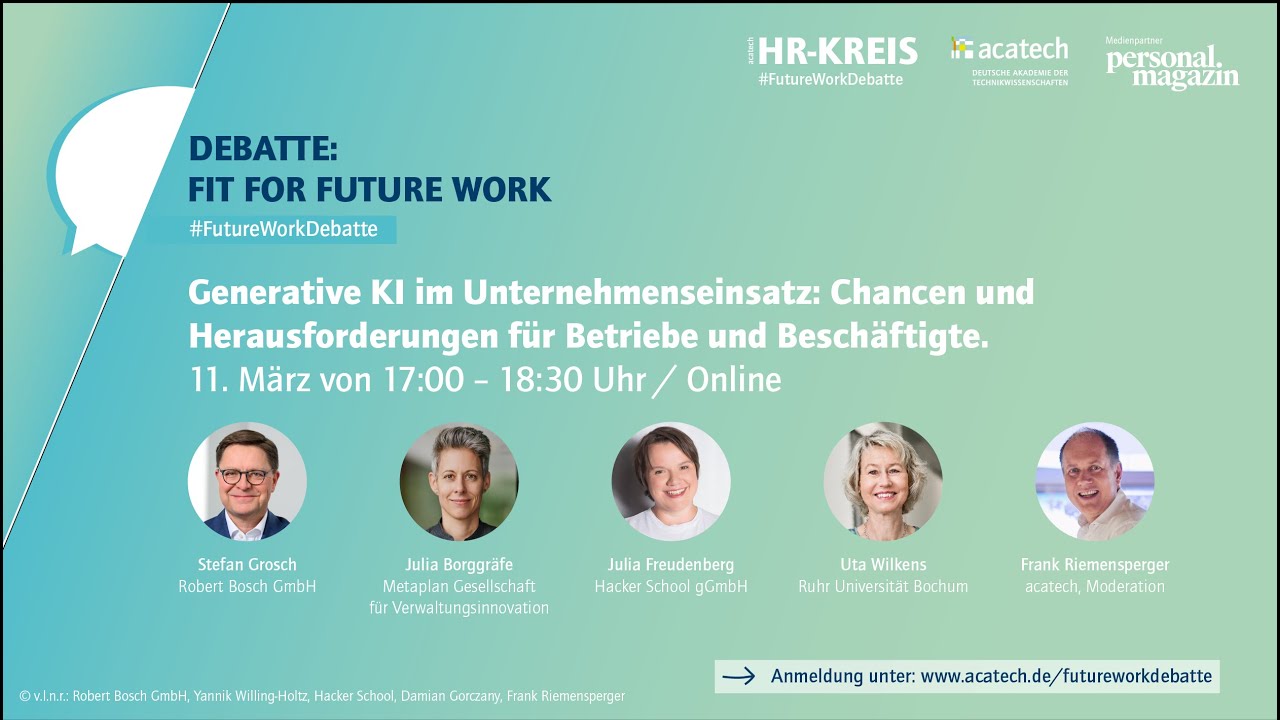GenAI and New Work: Combining domain knowledge, AI and cooperation as a competitive advantage
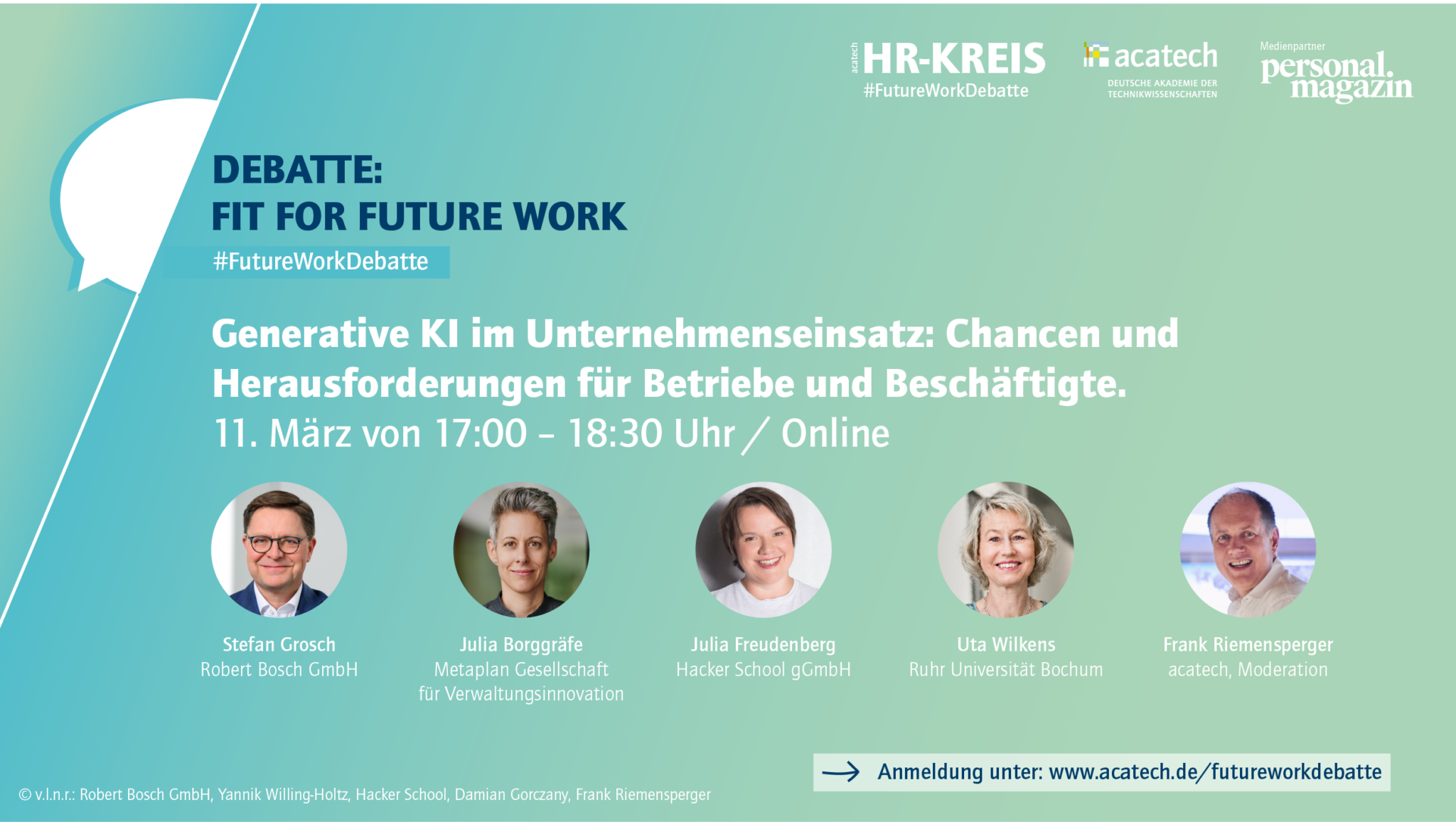
Munich, 20 March 2024
Bringing together data, domain knowledge and AI models can become a decisive competitive opportunity for companies and employees: The participants of the first #FutureWorkDebate 2024 quickly agreed on this. However, due to their complexity, innovations such as generative AI must be approached strategically and holistically, both in companies and in administration. At the invitation of acatech Executive Board member Frank Riemensperger, the participants explored how this can be achieved and what new role it opens up for HR managers.
Topic: Expert careers as a means to combat the shortage of skilled labour
Stefan Grosch began by giving an overview of the fact that the possibilities of generative AI are already being utilised in companies. As an established industrial company, Robert Bosch GmbH is working intensively on transferring generative AI from research to application. According to the Member of the Board of Management and Labour Director of Robert Bosch GmbH, cooperation is of great importance in order to successfully combine proven domain knowledge with AI models. However, he also made it clear that a great deal of investment would be required to empower users.
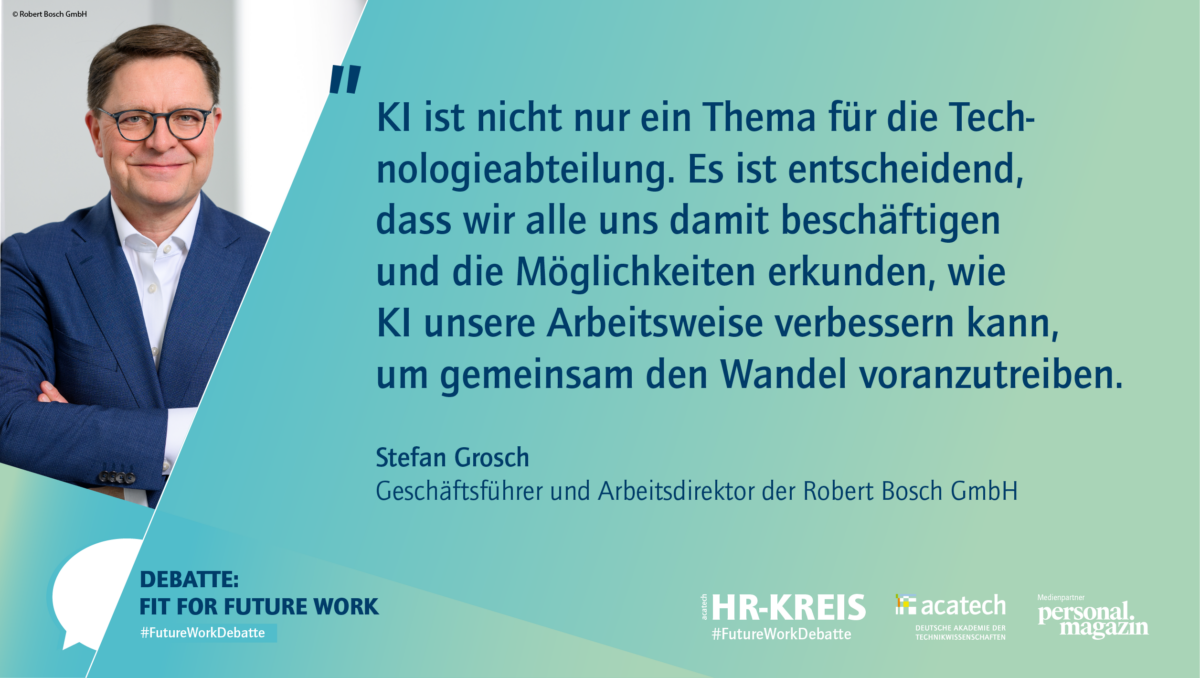
It is important to offer employees guidance so that everyone can find access to AI applications. It also helps to clearly emphasise the individual added value of the application. It is about new management requirements and the question of responsibility. His message: final decisions are still made by people.
Drivers for acceptance: positive user experience and legal certainty
Julia Freudenberg, CEO of the Hacker School and an expert in digital education concepts for children and young people, confirmed the importance of clear added value. It must be possible to convey the benefits to young people – at eye level. This is why a playful approach that puts a positive spin on learning and does not stigmatise failure is important. With fun and enjoyment at work, nobody has to be afraid of new things. The important thing is to create an awareness that AI only assists and does not absolve people from using their own intellect.
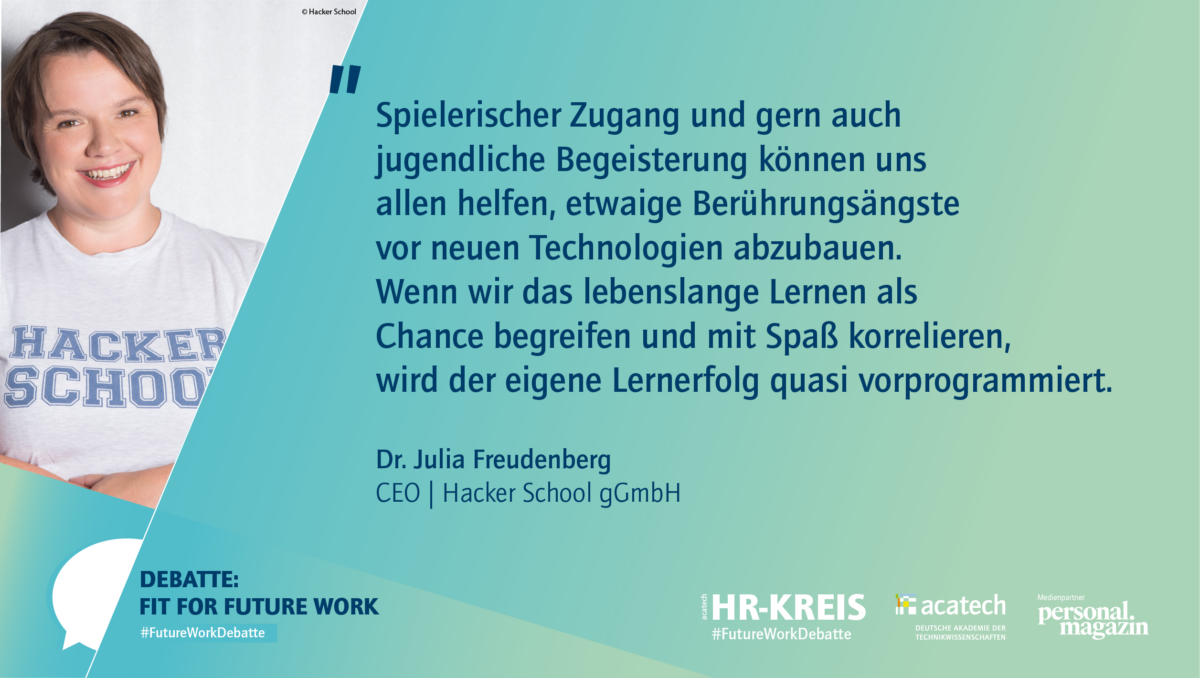
Julia Borggräfe, Associate Partner and Co-Managing Director at Metaplan, added to the idea of experimentation. The expert in strategy and organisational development introduced fields of experimentation and the use of agile, iterative approaches in dealing with generative AI. With regard to taking stock in the administration, she pointed out the diversity of administrative units – from small municipalities to large federal agencies. This is why they in particular face major challenges.
With a total of 11,000 local authorities, it is not yet possible to recognise a comprehensive offering, even though there are already many forward-looking examples from the administration. For them, legal certainty is more important than usability or customer satisfaction when using generative AI.
Management tasks: AI requires new work organisation under the responsibility of the CHRO
Uta Wilkens, spokesperson for the HUMAINE competence centre and holder of the “Work, Human Resources & Leadership” chair at the Institute of Ergonomics at Ruhr University Bochum, drew attention to the differences in the use of AI. Single-purpose AI – i.e. AI with a specific purpose – is already being implemented in many cases. In terms of work organisation, this requires support from HR development. Generative AI, on the other hand, presents companies with other structural challenges.
Employee acceptance is not an obstacle here, on the contrary: the guiding principle of “structure and strategy follows reality” often applies: companies are therefore looking for downstream framework conditions, which is due to the fact that many employees are already using Gen AI applications on their private devices.
The assistance function of AI often allows employees to concentrate on demanding tasks. Interaction between employees and teams would also change, which in turn would influence hierarchical structures. All of this – and the effects on an appropriate workload spectrum for employees – must be kept in mind.
Julia Borggräfe pointed out that the topic of innovation is still too rarely dealt with strategically in companies and administration. There is often a lack of awareness of the new structure of data, people and functions – which leads to obstacles in the transformation. However, this also opens up the opportunity for a new role for HR departments, which includes the areas of organisational and innovation development.
Speed of adaptation crucial in global competition
Stefan Grosch brought another factor into the discussion: speed. AI development is progressing exponentially fast – an opportunity that must be utilised. There are major differences globally, he said. He therefore spoke in favour of not focusing exclusively on Europe in order to remain competitive. Uta Wilkens emphasised that a critical and reflective approach to adapting new technologies is very pronounced in Germany. However, this can certainly be seen as an advantage when it comes to finding good, reliable solutions.
Outlook: AI deployment needs clear and simple framework conditions
Julia Freudenberg expressly stated that Germany does not have a problem recognising new technologies. Rather, the challenge in Germany often lies in the implementation, which is why she would like to see more courage and cooperation in dealing with AI. A framework that favours security, transparency and trust could provide support here: Regulation such as the EU AI Act could help to provide companies with guidance, said Julia Borggräfe. In general, it is important to take pleasure in the complexity of the topic and approach it holistically.
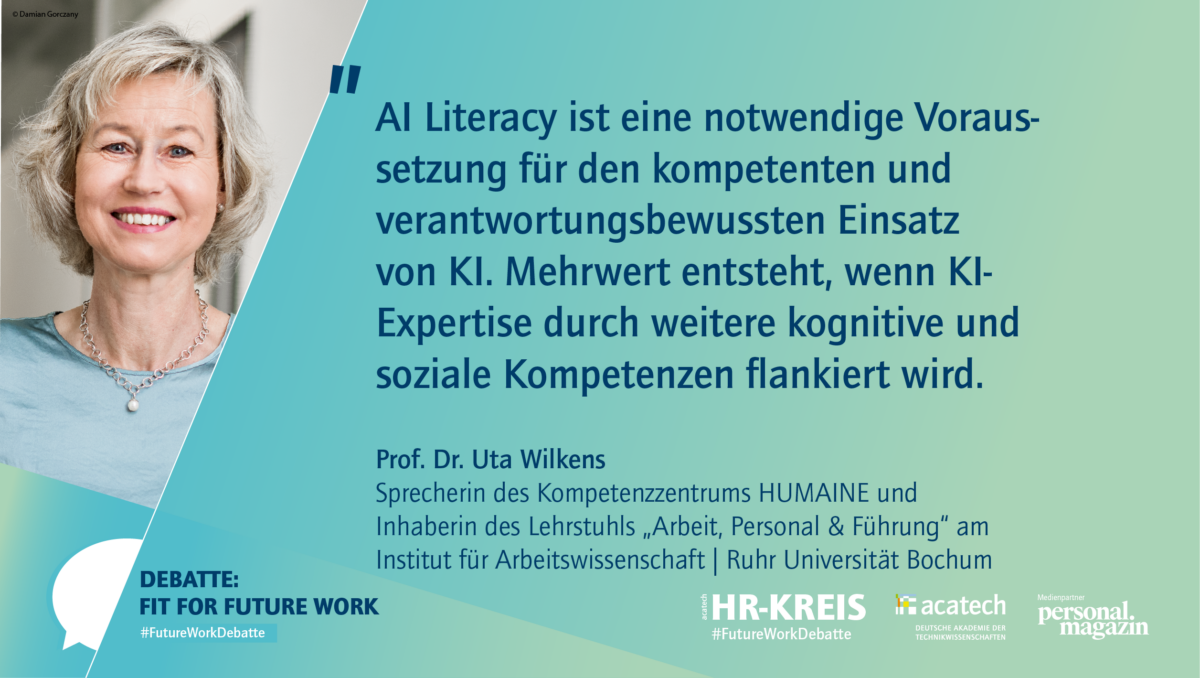
Uta Wilkens spoke in favour of training meta-skills and AI literacy, i.e. basic skills in the use, understanding and handling of AI. The education system has a duty here. Companies should also continue to focus on work design. Stefan Grosch concluded by expressing his wish for a general openness to the topic of AI and recognising its potential as a future framework condition for the successful use of generative AI in companies.
Recording of the event (in German)
About the debate series Fit for Future Work
Current proposals from acatech’s Human Resources Working Group are zeroing in on how a good working relationship can work and how digitalisation can go from bugbear and suspected job-killer to an opportunity for good work. In its debate series “Fit for Future Work” the Human Resources Working Group puts forward its perspectives for public discussion. The latest information and positions surrounding the debate series are available on social media:
#FutureWorkDebatte
acatech’s Human Resources Working Group on LinkedIn


